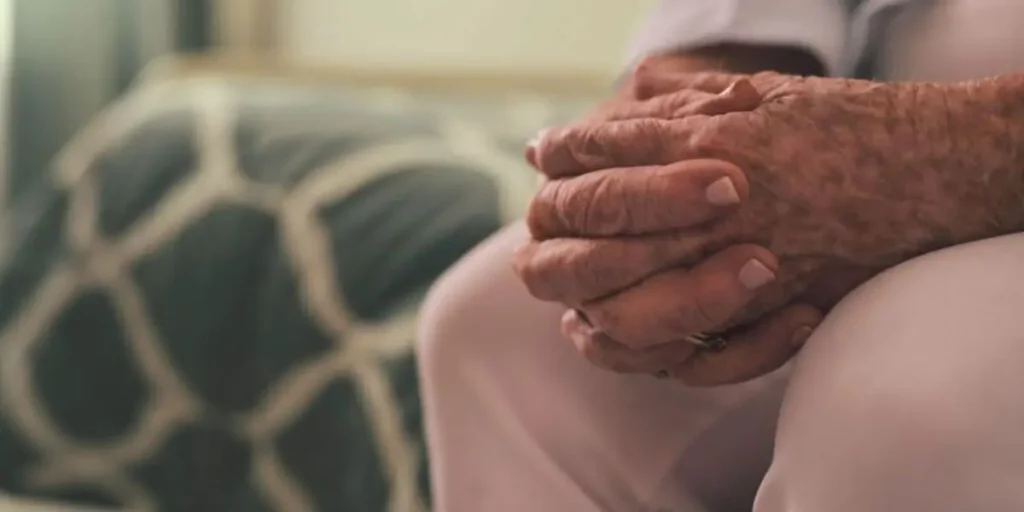One of the things that are inevitable in life is ageing. No matter how hard humans try to find an end to it, they’ve never discovered the elixir of life. Old age comes with joyous and sorrowful moments. The joy of seeing your generation grow vastly but pains accompany old age and bitterly aggressive sicknesses that seems unexplainable.
Health problems developed at old age are called geriatric syndrome which usually have more than one cause and involve many parts of the body being affected. Let’s delve into this and gather vital information.
What Is Geriatric Syndrome?
Geriatric syndrome are clear conditions affecting older people that do not generate from identifiable diseases but rather it comes as accumulated impairment across multiple systems in the body.

When an older person has cancer, the presence of geriatric syndromes will be visible and this will increase the complexity of cancer treatment. Cancer physiologic stress and treatments may worsen geriatric syndrome in older people.
What Are Geriatric Syndrome Common Conditions In Cancer Patients?
There are common conditions that reveal the presence of geriatric syndrome in older people with cancer, making the syndrome clearly identifiable. These include falls, cognitive syndrome, depression, and polypharmacy. In oncology settings, it was discovered that the presence of geriatric syndrome is relevant; the findings reveal that falls and cognitive problems have been linked to chemotherapy toxicity and overall survival.
In the general geriatric population, polypharmacy and depression only are common among older people with cancer. Several screening tools are available to identify falls, cognitive problems, poly pharmacy and depression in older adults and fish out patients at risk. Upon finding up to four geriatric syndrome in the oncology setting,
Several interventions will be made for the specific vulnerable population including clinical implications, validated screening tools, potential supportive care, and therapeutic process.
General Common Condition Of Geriatric Syndrome
Geriatric syndromes are often associated with reduced life expectancy and it usually include conditions such as depression, dementia, delirium, falls, incontinence, vertigo, failure to thrive, neglect, abuse,sarcopenia, frailty, Anorexia, Osteoporosis, weight loss and spontaneous bone fracture. For all these to be considered geriatric syndrome, it must interfere with a person’s daily life.
The Conditions will be explained individually for proper understanding.
This is one of the geriatric syndromes affecting the elderly. It is not a specific disease but an impaired ability to remember, think or make decisions that collides with carrying out daily activities. Signs and symptoms of dementia include: memory loss, poor judgement, confusion, wandering and getting lost in a familiar neighbourhood, difficulty speaking, not caring about other people’s feelings and repeating questions.
This is a serious change in a person’s mental ability. It results in confused thinking and environmental awareness. The prominent risk factor of delirium is dementia and the possible signs are hallucination, difficulty in paying attention, memory loss and sudden confusion.
Tthis usually occurs as a result of impaired mobility or balance. It could also be as a result of having one or more physical conditions. Most elderly do not feel symptoms while others have dizziness. Possible causes include: weak muscles, poor balance, black outs, foot problems, chronic conditions, medications, home hazard and impaired vision.
Urinary incontinence is a severe condition that leads to accidental urine drops due to overactive bladder and this affects elderly women mostly. Issues relating to bladder are very embarrassing and it can make you avoid outdoor activities. Possible causes include: weak bladder, weak pelvic floor muscles, age related changes of the lower urinary tract, impaired neural control and structural changes in vesicle muscle.
This happens when the tiny crystals in your ear are knocked out from their usual position. Signs and symptoms include dizziness, hearing loss in one or both ears, loss of balance, and a feeling of spinning in the surroundings.
Treatment Of Geriatric Syndrome
The following can be used as an effective means of treating geriatric syndromes:
Conclusion
Elderly with Geriatric syndrome conditions need constant care and support. Most times these conditions come as a result of underlying health issues while in most cases it’s as a result of aging. Tender care, support, and appropriate medications should be given to those experiencing this dreadful condition.